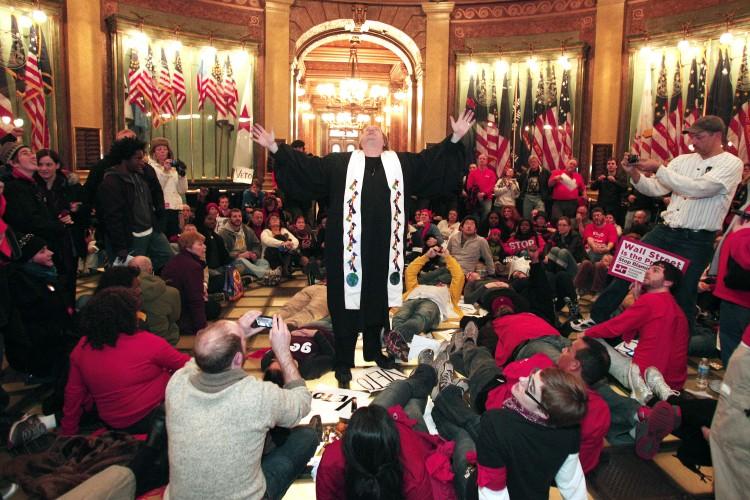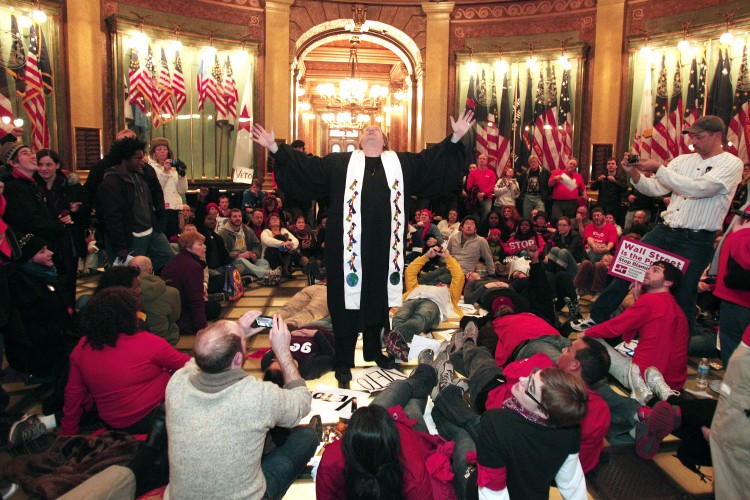The Republican majority Michigan Legislature passed controversial right-to-work legislation on Dec. 11, which means that people who work in a place covered by union collective bargaining will not have to be union members or pay union dues.
Gov. Rick Snyder (R-Mich.) has said that he will sign the legislation into law, perhaps by Dec. 12.
Thousand of people protested the legislation, evoking the turmoil in Wisconsin this summer when Gov. Scott Walker (R-Wis.) signed legislation restricting collective bargaining rights for workers. Protesters massed at the Wisconsin state Capitol and occupied the Capitol building. An attempt to recall Walker failed at the ballot box.
Public union expert Lee Adler is a researcher at the School of Industrial and Labor Relations (ILR) at Cornell University. According to Adler, Michigan’s situation shows that the 2012 election has not rolled back the changes that came with the 2010 election. Michigan unions cannot hope to overturn the right to work bill through legislative means.
Michigan voters rejected Proposal 2, which would have amended the state constitution to protect collective bargaining rights, and they rejected two other union-backed measures: one about home care workers and one about state emergency manager powers to suspend union agreements.
“The Republican Party still has the ability in a number of key states, including those above the Mason-Dixon line, to damage trade unions’ abilities to revitalize in the public and private sectors,” wrote Adler in an email.
“Unions’ political responses, by necessity, will need to be creative, expansive, and carefully coordinated with other parts of U.S. society with whom they have similar interests,” according to Adler.







